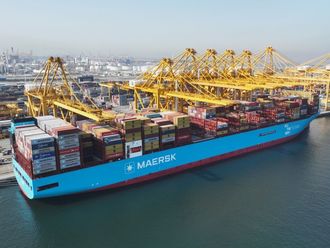London: European stocks struggled for traction even as US equity futures rose and Asian peers jumped after easing inflation in the world’s biggest economy removed some pressure from the Fed to step up the pace of monetary tightening. The dollar slipped after dropping the most since March on Thursday.
The Stoxx Europe 600 Index fluctuated, but still headed for its seventh week of increases, the longest streak in more than three years. Declines in the health care sector — weighed on by a string of negative drug-trial results and some stocks trading ex-dividend — offset gains for real estate and basic resources. US 10-year Treasury yields held below 3 per cent. Oil was steady around a three-year high, heading for a second week of gains after the US pulled out of the Iran nuclear deal.
Investors are weighing the most recent economic data releases and comments from monetary policymakers in order to judge the most likely path for global interest rates. Thursday’s lower-than-expected US. CPI reading came as UK money markets priced out a hike this year after the Bank of England forecast slower price rises. Comments from European Central Bank Governor Mario Draghi at a conference in Italy will be the focus later.
“With the US market pricing very much in line with the Fed’s projections, one of the few things that could take it by surprise was an uptick in inflation,” Gordon Kerr, a fixed-income trader at Johannesburg-based FirstRand Bank Ltd, said in a client note. “Yesterday’s print helped to calm those fears.”
Easing geopolitical tensions aided gains in Asian stocks, with Trump and Kim set for their landmark meeting in Singapore on June 12. Malaysian assets trading offshore began to stabilise after the shock election win for the opposition. Emerging-market stocks headed for the best week since February and most developing-nation currencies extended a rebound from the past month’s sell-off.












